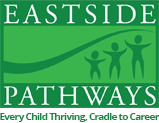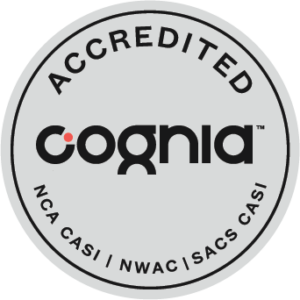 Every student is unique so it may make take time and creative thinking to find the accommodations that best support your child. Your child’s IEP or 504 team should generate ideas on accommodations that support your child. As a key member of your child’s IEP or 504 team, you can choose to be ready and willing to bring ideas to your child’s IEP or 504 meetings.
Every student is unique so it may make take time and creative thinking to find the accommodations that best support your child. Your child’s IEP or 504 team should generate ideas on accommodations that support your child. As a key member of your child’s IEP or 504 team, you can choose to be ready and willing to bring ideas to your child’s IEP or 504 meetings.
To help get you started, below are some common accommodations listed by learning need. Some of these suggestions will not be relevant for your child so only select accommodations you feel would benefit your child. Then, take those ideas to your child’s next IEP or 504 meeting.
ADD or ADHD
ADD and ADHD are not a learning disabilities. ADD and ADHD are health impairments that impact learning. However, ADD and ADHD often occurs alongside a learning disability, so if your child has ADD or ADHD and a learning disability, be sure to include accommodations for both conditions on your child’s IEP or 504 plan.
- Preferential seating to minimize distractions (in front of the classroom, not by the window, etc.)
- Provide an alternate location during tests and/or have testing occur at a particular time of day
- Provide instructions both in writing and verbally
- Allow use of a fidget toy or other adaptive equipment in classroom
- Allow use of earplugs or noise cancelling headphones
- Regular progress reports
- Allow use of electronic devices to assist with organization (cell phone camera, online calendar, etc.)
- Permission to turn assignments in electronically (email from home upon completion)
- Assistance with note taking or record lessons instead of taking notes
- Provide copies of classroom notes and/or lesson plans
- Allow extra time on assignments and tests
Dyslexia
Dyslexia is a very common learning disorder with some estimates as high as 20% of the world’s population having some degree of symptoms. Because it is common, there are many ideas for dyslexia accommodations. If your child is dyslexic, you will need to look for and advocate for solutions that fit your child’s specific dyslexia symptoms.
- Allow listening to audio books, movies, and/or digital media in lieu of reading text
- Provide directions orally, including during tests
- Provide written directions in large font
- Student will never be asked or required to read aloud in class
- Student will have opportunities to read aloud in an individualized setting (one-on-one)
- Provide outlines, summaries, vocabulary words, and pre-view questions before reading
- Allowed shared reading or a “reading buddies”
- Provide a set of text books or other assigned books to keep at home
- Allow extra time on assignments and tests
Dysgraphia
Dysgraphia is classified as a writing disability where difficulty may be experienced in two different aspects of writing: the physical act of writing (handwriting difficulty) and/or orthography, the ability to apply the rules governing the writing of language (spelling, grammar, etc.). In order to provide appropriate accommodations, you and your child’s IEP or 504 team need to understand if your child’s dysgraphia impacts one or both aspects of the writing process.
- Dictate answers to an aid rather than writing
- Capture answers on an audio recorder
- Access to a laptop computer or other keyboard in the classroom
- Assistance with note taking or record lessons instead of taking notes
Provide copies of classroom notes and/or lesson plans - Access to graph paper for math assignments and tests
Provide papers with header pre-completed (child’s name, date, etc.) - Let the student use spell-checking software or have access to a “proof-reader”
- Let the student decide if they will print or use cursive
- Remove neatness and spelling as grading criteria for some assignments
- Allow extra time on assignments and tests
Dyscalculia
Dyscalculia is a mathematics learning disability, sometimes called math dyslexia. It can affect many different areas of math learning, so it is critical for you and your child’s IEP team or 504 team to understand how dyscalculia impacts your child so accommodations fit their needs.
- Use of a calculator when not being tested on computation
- Allow use of a chart of math facts or multiplication tables
- Allow use of graph paper for written math problems and tests
- Provide a list of math formulas taught in the class
Create separate worksheets for word problems and number problems - Provide pre-written math problems in large font
- Highlight or circle key words in problems
- Allow extra time on assignments and tests
Asperger’s Syndrome
Asperger’s syndrome or Asperger’s disorder is included under the umbrella diagnosis of autism spectrum disorder. Autism spectrum disorder severity ranges widely, with Asperger’s disorder typically discussed as being on the “high-functioning” end of the autism spectrum. It is critical for you and your child’s IEP team to really evaluate and understand how Asperger’s syndrome specifically impacts your child’s education and to tailor Asperger’s accommodations tightly to their needs.
- Be provided the teacher’s weekly lesson plan
- Provide adequate notice for any changes in class schedule, except in cases of emergency
- Provide an area of the classroom the child can retreat to in times of high stimulation
- Preferential seating to reduce sensory stimulation (ex: not near a heater, open window, etc.)
- Provide an alternate location during tests and/or have testing occur at a particular time of day
- Allow students to arrive to class a few minutes before and leave a few minutes early to avoid high traffic transition times
- Supplement oral instructions with written and/or visual instructions
- Allow use of earplugs or noise cancelling headphones
- Allow extra time on assignments and tests
The above is not an extensive list of accommodations it is a starting point for further research and discussion. If your child has a learning challenge, being an informed, involved member of your child’s IEP or 504 team is the most important thing you can do to support your child’s education.



Leave a Reply